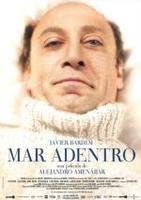Last night I went to the 10th Anniversary Reception of
GenderPAC down at the
Jeht Foundation offices in SoHo.
The evening actually started out with a conference call meeting of the New York State GENDA Coalition Steering Committee. I would put in a link to the Coalition's website, but it isn't up yet. My job today is to contact the person on charge of it and see what's going on--it was supposed to be running months ago. The Coalition is dedicated to the adoption of the Gender Non-Discrimination Act by New York State, which would extend to the entire state the
protections achieved here in New York City in 2002.
Getting back to the reception, GenderPAC, the Gender Public Advocacy Coalition, "works to end discrimination and violence caused by gender stereotypes by changing public attitudes, educating elected officials and expanding human rights," or so it says on its website. That's its current goal, but it wasn't always. Originally it was dedicated to
transgender rights. But five or six years ago it abruptly changed direction. It was very controversial, and most of its transgender board members quit.
I still support GenderPAC, if for no other reason than it helps foster good relations between the transgender community and the straights and gays that are the current major supporters. They have sharpened up the focus of their activities in the last couple years, and I think their efforts at providing parents with materials to help combat gender stereotyping will prove most useful.
But I think that too often they shoot themselves in the foot with little things like the invitation to this reception. It said the "Suggested Minimum Donation" was $75, but if you went to the webpage to get a ticket, the $75 minimum was not suggested, it was required. After I sent an e-mail to complain about this, they said they had a few "slots" for people who couldn't afford $75, and offered me one. I told them to save the slot for someone who really needed it.
Back to the reception itself, there were about 50 people there. Even before I arrived I spotted
Mariette Pathy Allen, the
Lammy-winning photographer of transgender people. My cab passed her as she was getting out of a car, and I waited at the street entrance to say hello. State Sen.
Tom Duane, the Senate's first openly-gay and first openly HIV-positive member, showed up for a little while. But the guest of honor was Doug Wright, the Tony Award and Pulitzer Prize winning playwright of
I Am My Own Wife. (Wright was a much better choice than
Brini Maxwell, whom GenderPAC presented at one of its earlier fundraisers. Maxwell's portrayal of the typical 50's housewife is at least a borderline gender stereotype--another shot in the foot.)
Anyhow, when I arrived I was immediately ushered into a photo with Wright. I guess the photographer liked me.
After a bit of mingling, wine and hors d'oeuvres, a short program began. There were a couple of speeches by the president of the host Jeht Foundation, and GenderPAC Executive Riki Wilchens. Then it was Doug Wright's turn. He made a nice
speech, trying to relate the work of GenderPAC to an "outtake" of his conversations with Charlotte von Mahlsdorf, the subject of his play. She was a German transvestite who survived the Nazi regime and its replacement in East Germany, the Soviet-dominated Communist dictatorship. I'm not sure the two things had much in common, but the story was interesting.
They also showed a short film,
GenderPAC at 10: A New Vision for Human Rights. It was very well done, though it was hardly as it was described on the little printed program they handed out: "A documentary film chronicling GenderPAC's first 10 years of work and growth." While it did an excellent job of showing its current efforts, not much of the past was covered. There was certainly no mention of GenderPAC'a naissance as a transgender rights group. (I don't think it's found anywhere on their website either.) I'm not sure, but I think there may have been one small error. It went by very fast, but I thought I saw a picture of Gwen Araujo captioned as Amanda somebody. I'm going to e-mail them to ask them to double check that.
The program ended with a solicitation for more donations. They had already gotten $9100 from the evening, and wanted to reach $15,000, half the cost of an additional staff-person that they wanted. They said that the person who donated the most would get a trip to Starbucks with Doug Wright following the reception. They did achieve their goal.
There was some more mingling afterwards. I had a nice talk with Michelle Miles, an old friend from
Crossdressers International, who is now the treasurer of GenderPAC. Then I went off to
Lips for the rest of my dinner and to see
Jesse Volt's "Dining With the Divas" show. She portrayed Nancy Sinatra this week, while Ginger did Britney Spears (Who told Britney Spears that "I Love Rock & Roll" needed her interpretation?), and Spanky did a make-up-smeared Courtney Love. Bartender Frankie Cocktail did her usual Dolly Parton.









